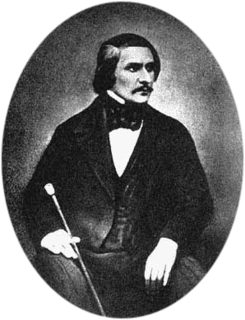A Quote by John B. S. Haldane
The conservative has but little to fear from the man whose reason is the servant of his passions, but let him beware of him in whom reason has become the greatest and most terrible of the passions. These are the wreckers of outworn empires and civilisations, doubters, disintegrators, deicides.
Related Quotes
Man is an Animal, formidable both from his Passions and his Reason; his Passions often urging him to great Evils, and his Reason furnishing Means to achieve them. To train this Animal, and make him amenable to Order; to inure him to a Sense of Justice and Virtue, to withhold him from ill Courses by Fear, and encourage him in his Duty by Hopes; in short, to fashion and model him for Society, hath been the Aim of civil and religious Institutions; and, in all Times, the Endeavour of good and wise Men. The aptest Method for attaining this End, hath been always judged a proper Education.
Nature in causing reason and the passions to be born at one and the same time apparently wished by the latter gift to distract man from the evil she had done him by the former, and by only permitting him to live for a few years after the loss of his passions seems to show her pity by early deliverance from a life that reduces him to reason as his sole resource.
A man who gives way to his passions is like a man who is shot by an enemy, catches the arrow in his hands, and then plunges it into his own heart. A man who is resisting his passions is like a man who is shot by an enemy, and although the arrow hits him, it does not seriously wound him because he is wearing a breastplate. But the man who is uprooting his passions is like a man who is shot by an enemy, but who strikes the arrow and shatters it or turns it back into his enemies heart.
As countless as grains of sand by the sea are human passions, and they all differ; all of them, vile or lofty, begin by being under a man's control and then become his terrible masters. Blessed is he who has chosen the most lofty of passions: his immeasurable bliss grows and multiplies tenfold with every hour and minute, and he penetrates deeper and deeper into the infinite paradise of his soul.
When a man venerates those worthy of veneration, be they Buddhas or their disciples, who have transcended all obstacles and passed beyond sorrow and tears - venerating such as these, whose passions are extinguished and for whom there is no further source for fear, no one can calculate how great his merit is.
It was not reason that besieged Troy; it was not reason that sent forth the Saracen from the desert to conquer the world; that inspired the crusades; that instituted the monastic orders; it was not reason that produced the Jesuits; above all, it was not reason that created the French Revolution. Man is only great when he acts from the passions; never irresistible but when he appeals to the imagination.
Superstition, in all times and among all nations, is the fear of a spirit whose passions are those of a man, whose acts are the acts of a man; who is present in some places, not in others; who makes no places holy and not others; who is kind to one person, unkind to another; who is pleased or angry according to the degree of attention you pay him, or praise you refuse to him; who is hostile generally to human pleasure, but may be bribed by sacrifice of a part of that pleasure into permitting the rest. This, whatever form of faith it colors, is the essence of superstition.
I join cordially in admiring and revering the Constitution of the United States, the result of the collected wisdom of our country. That wisdom has committed to us the important task of proving by example that a government, if organized in all its parts on the Representative principle unadulterated by the infusion of spurious elements, if founded, not in the fears & follies of man, but on his reason, on his sense of right, on the predominance of the social over his dissocial passions, may be so free as to restrain him in no moral right, and so firm as to protect him from every moral wrong.




































